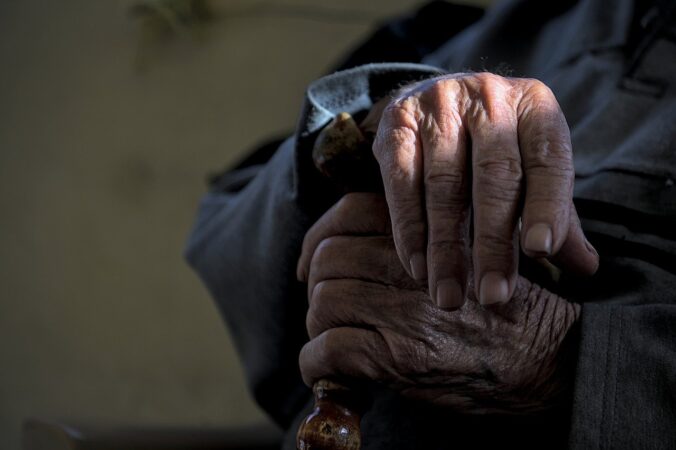I was sitting in the medical center waiting room with my father. We had arrived early for his treatment, so I was checking emails and trying to edit a document, using my phone. This was not going smoothly!
My patience was wearing thin as I listened to a news story blaring through someone’s phone. “How rude,” I thought, as I looked up and scanned the waiting room to see where the sound was coming from. The area was filling up. Everyone seemed to be arriving in pairs. It was a cancer treatment day at the medical center, and I could see the strain on people’s faces.
Suddenly, I spotted the person with the loud phone. He was an old man, and when our eyes met, we held each other’s gazes for a long moment. Before I turned away, I gave him a look intended to express my disdain over the news story he was blasting across the waiting room.
I went back to editing my document. No one else really even seemed aware of the old man. Why was I feeling so annoyed?
As I fired off my last email, I realized the sound from the old man’s phone was getting louder. I looked again in his direction and our eyes locked. He clearly had been watching me and seemed to have turned up the volume on his phone. What was his problem? Why was he trying to get my attention? What did he want?
My father and I looked at each other and shrugged.
“Let’s move, Dad. Let’s get away from this ridiculous noise.”
I shot one last annoyed glance at the old man, as my father and I walked to a far corner of the waiting room, away from the noise.
About a week later I woke up in the middle of the night, thinking about that old man. I could see the waiting room clearly in my mind and I realized that the old man was alone. Everyone was in pairs, but not this old man. Was he frightened, being there alone? Were his treatments working? How was he feeling that day?
Why hadn’t I noticed that the old man was alone? Would it have changed how I engaged with him? Why was I so perturbed by the sounds of his phone?
As I thought about the old man in the early morning light, I thought about St. Mother Teresa of Calcutta.
St. Mother Teresa showed us that we are not here on earth to rush through our days, and to leave others behind.
We are here to love and to be kind to one another, because in doing so, we enable God to enter into that moment.
As she observed, the world’s people need more love. We are all hungry for God:
“Are we willing to share people’s sufferings, not only in poor countries but all over the world? It seems to me that this great poverty of suffering in the West is much harder to solve. When I pick up a starving person off the street and offer him a bowl of rice or a piece of bread, I can satisfy his hunger. But a person that has been beaten or feels unwanted or unloved or fearful or rejected by society experiences a kind of poverty that is much more painful and deep. The cure is much more difficult to find. People are hungry for God. People are hungry for love. Are we aware of that? Do we know that? Do we see that? Do we have eyes to see? Quite often we look but we don’t see. We are all just passing through this world. We need to open our eyes and see.”1
Early today, I prayed for that old man, and asked Jesus that this man experience love deeply in his life.
I also asked Jesus to help me to slow down – way down – so that I may see the people in my path that He is asking me to care for and love.
The people that God places in our paths are there for a reason. St. Francis of Assisi aptly observed that when we give of our ourselves to others, we receive so much more than we give. In giving, we receive the lasting gifts of more faith and hope and love, and a deeper awareness of why we are all here, together.
Jesus loves us so much. His kind of love can change us, if we allow His love to flow through us and on to others.
“Be kind to one another, tenderhearted, forgiving one another, as God in Christ forgave you. Therefore be imitators of God, as beloved children. And walk in love, as Christ loved us and gave Himself up for us.” Ephesians 4: 32, 5: 1-2
1Mother Teresa, No Greater Love (California: New World Library, 2001), pages 55-56.

Recent Comments